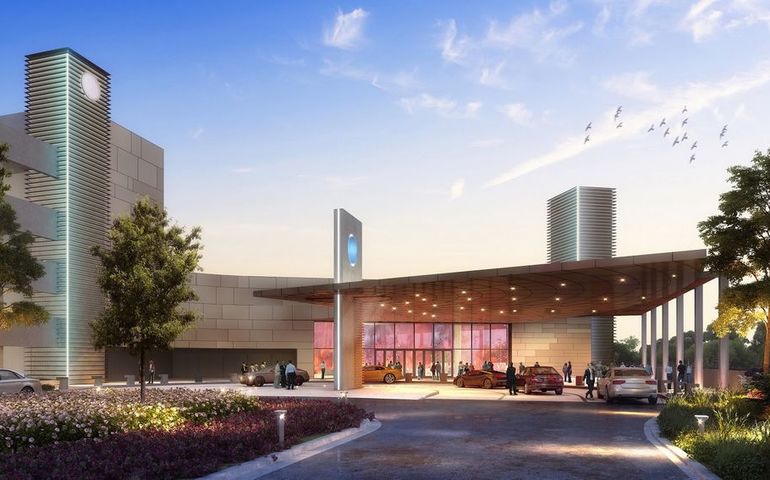
Processing Your Payment
Please do not leave this page until complete. This can take a few moments.
-
News
-
Editions
-
- Lists
-
Viewpoints
-
HBJ Events
-
Event Info
- 2024 Economic Outlook Webinar Presented by: NBT Bank
- Best Places to Work in Connecticut 2024
- Top 25 Women In Business Awards 2024
- Connecticut's Family Business Awards 2024
- What's Your Story? A Small Business Giveaway 2024 Presented By: Torrington Savings Bank
- 40 Under Forty Awards 2024
- C-Suite and Lifetime Achievement Awards 2024
- Connecticut's Health Care Heroes Awards 2024
-
-
Business Calendar
-
Custom Content
- News
-
Editions
View Digital Editions
Biweekly Issues
- April 29, 2024
- April 15, 2024
- April 1, 2024
- March 18, 2024
- March 4, 2024
- February 19, 2024
- February 5, 2024
- January 22, 2024
- January 8, 2024
- + More
Special Editions
- Lists
- Viewpoints
-
HBJ Events
Event Info
- View all Events
- 2024 Economic Outlook Webinar Presented by: NBT Bank
- Best Places to Work in Connecticut 2024
- Top 25 Women In Business Awards 2024
- Connecticut's Family Business Awards 2024
- What's Your Story? A Small Business Giveaway 2024 Presented By: Torrington Savings Bank
- 40 Under Forty Awards 2024
- C-Suite and Lifetime Achievement Awards 2024
- Connecticut's Health Care Heroes Awards 2024
Award Honorees
- Business Calendar
- Custom Content
MGM suit takes new tact to blocking tribes
 Rendering | Tribal Winds Casino
A rendering of MMCT's proposed $300 million casino in East Windsor.
Rendering | Tribal Winds Casino
A rendering of MMCT's proposed $300 million casino in East Windsor.
MGM Resorts International sued the Department of the Interior on Wednesday in a fresh bid to bar tribal competitors in Connecticut from constructing an off-reservation casino in East Windsor or pursuing rights to another one in Bridgeport.
The 33-page suit filed in U.S. District Court in Washington represents a strategic shift by MGM, which previously had accused Connecticut of constitutional violations in its no-bid authorization of an East Windsor casino to compete with MGM Springfield.
The aims of the new suit are broader than stopping East Windsor: It argues that Interior and its Bureau of Indian Affairs have no authority to accept amendments to Connecticut’s gambling compacts with its two federally recognized tribes for any off-reservation commercial gambling.
“The amendments are not limited to an East Windsor casino: they facilitate commercial, off-reservation gaming by the tribal joint venture anywhere in Connecticut, and state legislators have recently proposed granting the joint venture an exclusive, no-bid license to operate a casino in Bridgeport, Connecticut,” the suit says. “The amendments thus confer a statewide, perpetual competitive advantage on the joint venture.”
While potentially taking years to litigate, the lawsuit is likely to have an immediate political impact in Hartford. It appears geared to raise doubts about the tribes’ ability to legally develop off-reservation casinos or compete for exclusive rights to sports betting in the state.
The suit was filed as the state seeks a path to legalize sports betting in Connecticut, one that Gov. Ned. Lamont had hoped to smooth by striking a grand bargain with the tribes and MGM.
But the Mashantucket Pequot and Mohegan tribal nations, the respective owners of Foxwoods Resort Casino and Mohegan Sun on reservations in eastern Connecticut, reaffirmed Monday that they will not give up plans for East Windsor in return for sports betting or any other inducement.
Two days later, MGM is laying down its own marker, filing a suit that has been in making for months or longer. The suit asks a federal judge to vacate Interior’s approval of the amendments, alleging a violation of a federal Indian gaming law and the Administrative Procedure Act.
“MGM Resorts is filing this lawsuit because the Interior Department’s decisions violate established federal law and prevent MGM from competing on equal terms in Connecticut,” the company said in a statement.
“As I have consistently said, our state needs to reach a global gaming resolution that will avoid years and years or complex litigation,” Lamont said. “The gaming industry in Connecticut represents a significant portion of our economy, and as other states have demonstrated, there is room to grow it.
Molly Block, the press secretary of the Department of the Interior, said its officials cannot comment on ongoing litigation.
Andrew Doba, a spokesman for MMCT, the Mashantucket Pequot and Mohegan tribal nations partnership behind the East Windsor plan, said the suit should change nothing in the debate over sports betting or other gambling in Connecticut.
“The choice for Connecticut policymakers can’t get any clearer,” Doba said. “We can either let a Las Vegas company that generates not one dime of revenue for the state push us around, or we can stand strong with the tribes and an industry that’s generated more than $8 billion in tax revenue and currently employs 18,000 people.”
The procedural, political and legal history undergirding the new lawsuit is complicated, some of it unique to Connecticut. It is the legacy of a strategic retreat by Gov. Lowell P. Weicker Jr. a quarter century ago on the issue of casino gambling.
Weicker cut a deal with the Mashantucket Pequot and, later, Mohegan tribal nations to permit slot machines at what would become two of the world’s largest casinos, Foxwoods and Mohegan Sun. The deal both opened the door to casino gambling and imposed a limit — one that still complicates any expansion of gambling in the state.
It gave the tribes exclusive rights to casino gambling in Connecticut in return for 25 percent of their gross slots revenues. That served two purposes: creating a revenue source that has produced $8 billion for the state, while effectively pricing out competitors unable to guarantee a similar return.
But the deal did not anticipate changes in public attitudes towards casino gambling — Massachusetts, Rhode Island and New York casinos now compete with the tribes — or a U.S. Supreme Court decision that recently struck down federal restrictions that had largely limited legal sports betting to books operated by casinos in Nevada.

Once Massachusetts gave MGM the rights to open a casino Springfield, the tribes sought permission to open a satellite operation off I-91 in East Windsor, about 12 miles from Springfield. With a special act passed in 2017, the General Assembly effectively granted the tribes’ joint venture, MMCT, the state’s first commercial casino license.
The act did not take effect, however, unless Interior accepted amendments to Connecticut’s gambling agreements with the tribes. The requirement was meant to guarantee that a new commercial casino — even one owned by the tribes — would not violate the exclusivity agreement of the older agreement and jeopardize the 25 percent revenue sharing.
Tribes are free to conduct gambling off their reservations, without approval of Interior. The Mohegans, for example, unsuccessfully competed with MGM for a Massachusetts license, the tribe’s gambling operation run casinos in Pennsylvania, Canada and South Korea.
But those undertakings do not involve maintaining or expanding gambling compacts with their home state under the provisions of IGRA, the Indian Gaming Regulatory Act.
The heart of MGM’s new suit is a claim that the tribes are trying to use IGRA and the gambling compact amendment process to eliminate commercial competition off reservation.
“IGRA was never intended to allow such a scheme, and Interior lacks statutory authority to approve it,” MGM said in the lawsuit.
The role of Interior and the Bureau of Indian of Affairs in considering the East Windsor amendments was the subject of fierce lobbying in Washington, with the state’s congressional delegation demanding an investigation into what it calls MGM’s efforts to use the Trump White House to stop an expected approval.
While initially siding with MGM, Interior reversed course and gave it s final approval earlier this year. IGRA, is says, was intended to create a way for tribes to expand taking land in trust as part of their historic reservations.
Connecticut’s tribes are using it to bootstrap control of a broader commercial market
“These amendments have the stated purpose of facilitating off-reservation, commercial gaming operated by a joint venture wholly owned by Indian tribes,” MGM said in the suit. “These amendments therefore circumvent IGRA’s land-in-trust process, which governs off-reservation gaming, and allow Connecticut’s federally-recognized Indian tribes to leverage their duopoly over tribal gaming to obtain a monopoly over commercial gaming in Connecticut.”
By suing Interior instead of Connecticut, MGM avoids the question of legal standing.
The company has previously claimed that the special act authorizing East Windsor in 2017 violated the equal protection and commerce clauses of the U.S. Constitution. But MGM is barred by its Massachusetts license from doing business within a 50-mile radius of Springfield — meaning it could not compete for the East Windsor site.
MGM raised such claims in a suit filed in 2015, before the passage of the 2017 law. It was dismissed as premature.
Related article
Related Content

2022 Giving Guide
This special edition informs and connects businesses with nonprofit organizations that are aligned with what they care about. Each nonprofit profile provides a crisp snapshot of the organization’s mission, goals, area of service, giving and volunteer opportunities and board leadership.
Learn more
Subscribe
Hartford Business Journal provides the top coverage of news, trends, data, politics and personalities of the area’s business community. Get the news and information you need from the award-winning writers at HBJ. Don’t miss out - subscribe today.
Subscribe
2024 Book of Lists
Delivering Vital Marketplace Content and Context to Senior Decision Makers Throughout Greater Hartford and the State ... All Year Long!
Read Here-
2022 Giving Guide
This special edition informs and connects businesses with nonprofit organizations that are aligned with what they care about. Each nonprofit profile provides a crisp snapshot of the organization’s mission, goals, area of service, giving and volunteer opportunities and board leadership.
-
Subscribe
Hartford Business Journal provides the top coverage of news, trends, data, politics and personalities of the area’s business community. Get the news and information you need from the award-winning writers at HBJ. Don’t miss out - subscribe today.
-
2024 Book of Lists
Delivering Vital Marketplace Content and Context to Senior Decision Makers Throughout Greater Hartford and the State ... All Year Long!
ABOUT
ADVERTISE
NEW ENGLAND BUSINESS MEDIA SITES
No articles left
Get access now
In order to use this feature, we need some information from you. You can also login or register for a free account.
By clicking submit you are agreeing to our cookie usage and Privacy Policy
Already have an account? Login
Already have an account? Login
Want to create an account? Register
Get access now
In order to use this feature, we need some information from you. You can also login or register for a free account.
By clicking submit you are agreeing to our cookie usage and Privacy Policy
Already have an account? Login
Already have an account? Login
Want to create an account? Register










0 Comments